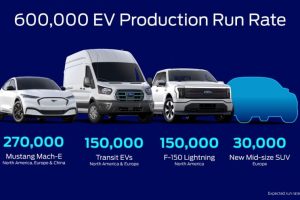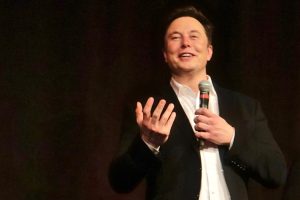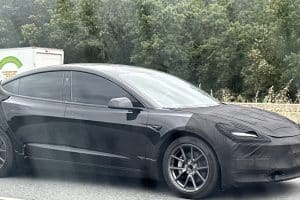- 💡 Kia is committed to investing fully in electric vehicles (EVs) despite concerns about slowing demand.
- 📈 Kia aims to sell 3.2 million EVs globally in 2024, with targets set to increase to 4 million by 2027 and 4.3 million by 2030.
- 🚗 The company expects sales of pure battery electric vehicles (BEVs) and hybrid electric vehicles (HEVs) to reach 761,000 units this year, constituting 24% of total sales.
- 🌍 Kia emphasizes its role in responding effectively to market changes and implementing a customer-centered mobility future.
- ⚡ Despite projections of a slowdown in the global EV market until 2026, Kia plans to offset this by strengthening its HEV lineup and launching cheaper EVs.
- 🔄 Hyundai Motor Group, Kia’s parent company, anticipates the slowdown due to factors such as a sluggish economy, reduced EV subsidies, and the need for expanded charging infrastructure.
- 🚙 Ford, another legacy automaker, is also shifting its focus towards hybrid production, postponing the launch of at least two EVs.
In the ever-evolving landscape of automotive innovation, electric vehicles (EVs) have emerged as the beacon of sustainability and technological advancement. Amid concerns of slowing demand and market uncertainties, Kia, the Asian automotive giant, is making a bold statement by fully committing to the electric revolution. Let’s delve into Kia’s ambitious plans, dissect the industry trends, and explore the implications of this monumental shift.
Kia’s Electric Vision: A Commitment to Sustainability
In a world grappling with environmental challenges and the urgent need for decarbonization, Kia’s steadfast commitment to investing in EVs is a commendable move. Despite the prevailing concerns about market demand, Kia is undeterred in its pursuit of a greener future.
Setting Ambitious Targets
Kia’s ambitious targets speak volumes about its confidence in the EV market’s potential. With plans to sell 3.2 million EVs globally in 2024, the company is laying down the groundwork for exponential growth. Looking ahead, Kia aims to ramp up its global EV sales to 4 million by 2027 and 4.3 million by 2030, signaling its long-term vision and unwavering dedication to sustainability.
Navigating Market Dynamics: Challenges and Opportunities
While Kia’s enthusiasm for EVs is palpable, the company must navigate through a complex web of market dynamics and industry challenges.
Addressing Market Concerns
The projections of a slowdown in the global EV market until 2026 raise pertinent questions about Kia’s strategy. Factors such as a sluggish economy, reduced EV subsidies, and the need for expanded charging infrastructure pose significant challenges. However, Kia’s proactive approach to strengthening its hybrid electric vehicle (HEV) lineup and introducing more affordable EVs demonstrates its adaptability and resilience in the face of adversity.
Parental Guidance: Hyundai’s Influence
As a subsidiary of Hyundai Motor Group, Kia’s strategic decisions are closely intertwined with Hyundai’s broader vision and market outlook. Hyundai’s anticipation of the EV market slowdown underscores the need for Kia to adopt a multifaceted approach, balancing innovation with market realities.
Ford’s Shift: A Sign of the Times
Kia’s move towards EVs is not an isolated phenomenon but rather part of a broader industry trend. Legacy automakers like Ford are also recalibrating their strategies, emphasizing hybrid production and delaying the launch of certain EV models. This shift underscores the industry’s dynamic nature and the imperative for traditional automakers to adapt to changing consumer preferences and market conditions.
Conclusion: Paving the Way for a Sustainable Future
As Kia embarks on its journey towards electrification, it sends a powerful message to the automotive world—a message of innovation, sustainability, and resilience. By embracing the electric revolution wholeheartedly, Kia is not only future-proofing its business but also championing a cause that transcends corporate interests—a cause that is essential for the preservation of our planet and the well-being of future generations.





